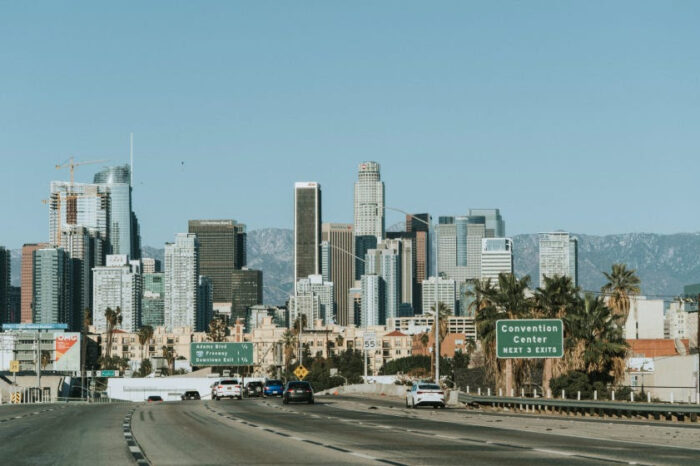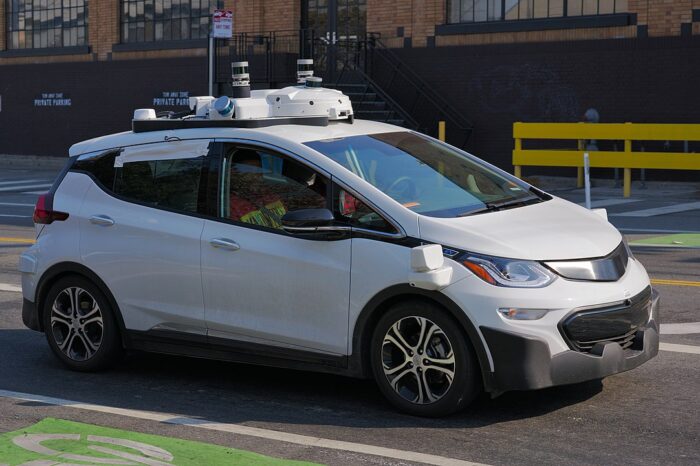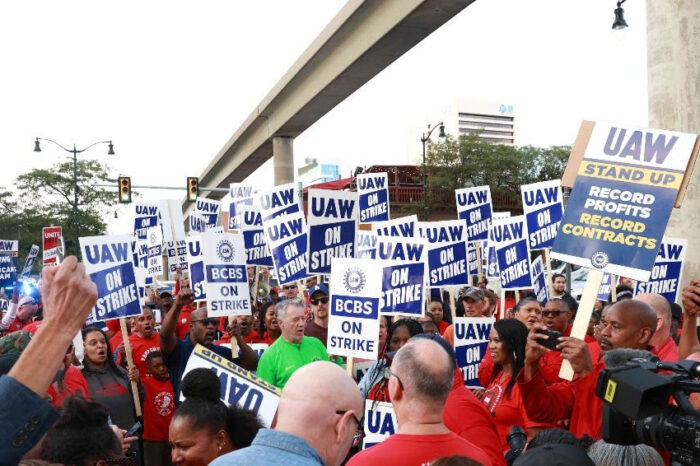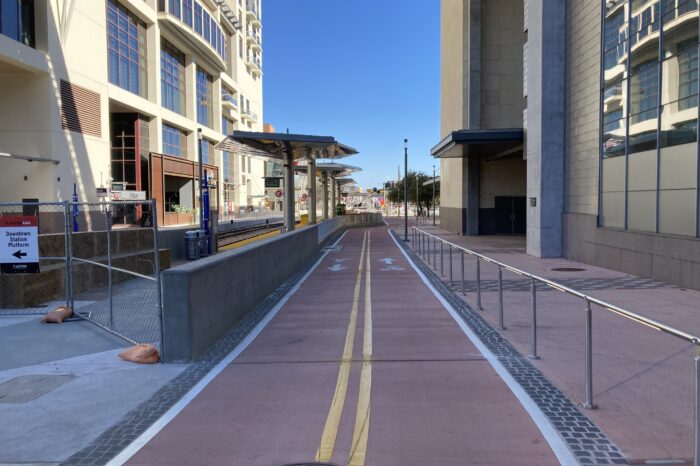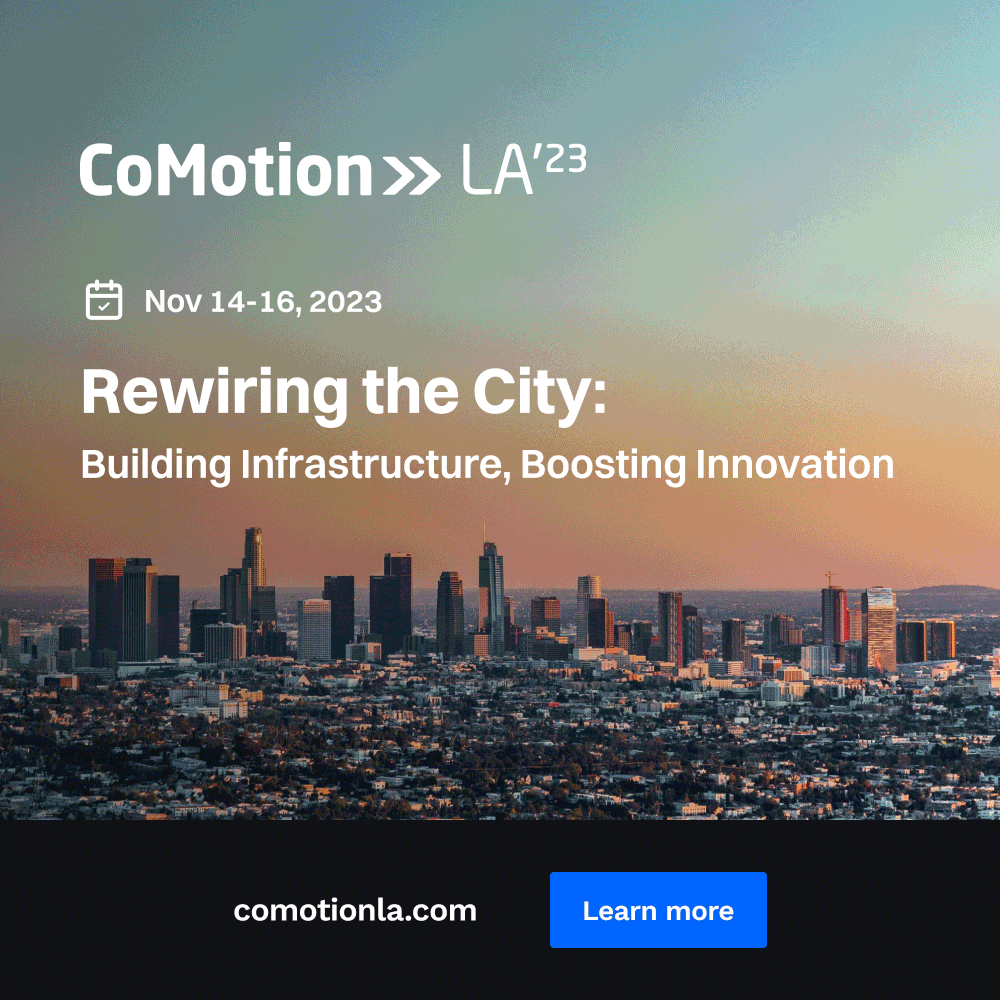The Suez Canal has been cleared, but likely not soon enough to prevent more damage to the auto industry, already struggling with a shortage of key materials. Perhaps the most far-reaching transportation news, though, comes from Washington, where President Joe Biden has begun to press for a $3 trillion infrastructure package mere weeks after signing a separate $1.9 trillion stimulus. Biden isn’t specific yet about what will be in the plan, but the administration is hinting at massive support for traditional infrastructure concerns such as road and bridge repairs as well as a generational investment in clean technologies to combat climate change. Hear that, Beijing?
![]()
From bad to worse: The fiasco in the Suez Canal threatens to exacerbate materials shortages that have already badly rattled the auto industry in recent months. It is even slowing down the transport of finished vehicles: At least two major auto transport vessels have been stopped due to the Ever Given’s grounding; others scheduled to travel through the canal may soon have to make the painful decision about whether to wait it out or try to go around Africa, adding 10 days to the journey.
Voltswagen: No, this is not one of our clever puns. The 84-year-old German automaker is actually switching the “k” for a “t” to reflect its new focus on electric vehicles. For a few critical moments on Monday, there was a press release on the company’s website announcing the name change. The announcement was dated April 29, however, and it was quickly taken down. Despite April Fools’ Day being right around the corner, company sources are telling media outlets that it was not a prank.
The roads to beating China: In making his case for a $3 trillion infrastructure package to Congress, Transportation Secretary Pete Buttigieg says America risks falling behind China economically and technologically if it doesn’t make a big investment now. Buttigieg stressed the importance of repairing aging roads and bridges as well as spending big on green technology and public transit.
Goldman warns of rising EV costs: A new analysis from Goldman Sachs says growing demand for EVs will drive up the cost of key battery materials. Major price increases for lithium, cobalt and nickel will lead to an 18% increase in the overall cost of EV batteries, the bank projects. This could mean slimmer margins for OEMs — but it could also push them to adopt cheaper battery technology, such as lithium iron phosphate batteries that don’t include nickel or cobalt.
States push to raise fees on EVs: Concerned that a rise in EV adoption will deplete gas tax revenue, many states are pushing to increase fees on EVs. Lawmakers in at least 10 states, all but one of which are Republican-controlled, are considering legislation to increase annual fees on EVs. In West Virginia, however, there is a push from some legislators to eliminate the existing $200 registration fee for EVs.
Jeep goes off the fossil fuel road: The iconic SUV brand is transitioning to an electric future, says CEO Christian Meunier. In the near future every new Jeep will include some level of electrification, whether they’re EVs or PHEVs. This comes days after Jeep unveiled its all-electric Wrangler concept.
Say it ain’t so, Joe: Despite President Joe Biden’s executive order instructing federal agencies to shift to EVs, a Bloomberg analysis shows that the federal government is still plowing money into gas-guzzlers. Since Biden’s inauguration, only 13% of the $440 million the General Services Administration has spent on vehicles has gone towards ones that are even partially electric. And that doesn’t include the $6 billion contract the Postal Service inked with Oshkosh Defense Corp for new delivery vehicles that aren’t even fuel efficient, let alone electric. Granted, many of these purchases were likely approved before Biden took office.
Miami explores Musk-style transit: Last month Elon Musk wowed Miami Mayor Francis Suarez with claims that he could deliver the long-discussed Brickwell Tunnel under the Miami River for only 3% of the cost projected by transportation officials. Now Suarez is taking the idea to the next level, envisioning a six-mile tunnel where electric SUVs carry up to five fare-paying passengers at a time.
Bipartisan push to expand EV station tax credit: A bill that has support from Democrats and Republicans in the Senate would increase the tax credit available to businesses investing in EV charging infrastructure. The Securing America’s Clean Fuels Infrastructure Act would raise the maximum amount eligible for the tax credit from $30,000 to $200,000 and apply to any property that enters service through 2029.
Dallas wants a subway: The Dallas City Council unanimously OKs pursuing a $1.7 billion subway downtown. The Big D’s four existing light rail lines already boast the highest ridership of any light rail system in the south. The city is banking on a $800 million federal grant covering nearly half the cost of the project. The new line was initially proposed to be at-grade, but resistance from downtown neighbors pushed the project underground –– at a significantly higher cost
![]()
A Chinese Cannonball Run?: Chinese EV startup Xpeng claims a new record: the longest continuous driverless car voyage. Sixteen of the company’s P7 mid-sized cars left Guangzhou on March 19 and eight days and 2,283 miles later, they arrived in Beijing. The successful journey was notable not just for the length but the complexity of the route, including navigating a series of heavily-trafficked highways and passing through seven major cities. Still, the trip may not have been a total success without some human assistance: there was an average of 0.65 human interventions per 100 km. We’re still a ways off from Level 5…
Tesla autopilot faces regulatory scrutiny: Following much criticism of its hands-off approach to AVs in general and Tesla in particular, the National Highway Traffic Safety Administration is investigating 23 crashes involving Teslas in recent years that may have involved autopilot, the automaker’s driver assistance program. Some of the crashes include two in which a Tesla drove underneath a tractor trailer and two in which a Tesla crashed into police cars that had stopped on the highway. These incidents raise questions about the software’s ability to perceive key details about the road that would be apparent to the naked eye.
Driverless ride-sharing in DFW: With the help of a $1.7 million federal grant, a partnership between Via, May Mobility and the University of Texas-Arlington is kicking off a small fleet of robo-taxis in Arlington, the suburban community near Dallas that holds the dubious distinction of being the largest U.S. city without a public transportation system. The fleet consists of four hybrid Lexus RX 450h SUVs and one electric Polaris GEM, all of which will include an attendant in the driver’s seat. The fare will be based purely on distance, with a maximum fare of $5. The service will only be available from 7 a.m. to 7 p.m.

Prices up for e-bikes: Some e-bike manufacturers are jacking up prices in response to increased cost drivers, including a shortage of key materials, a weaker U.S. dollar and the end of a U.S. tariff exemption for e-bike parts. Rad Power Bikes, which offers some of the most affordable e-bikes on the market, has hiked the price of many of its models by $100, pushing the cost of its cheapest bike to $1,299. It raised the price of its popular RadWagon cargo bike by $200 –– to $1,799. The demand for bikes in general and e-bikes in particular has gone through the roof over the past year, prompting long waits for some buyers as manufacturers and retailers scramble to stock up. While high demand may be prompting short-term price hikes for existing models, the increased popularity may also incentivize manufacturers to pursue lower-cost models accessible to a larger market.
B.C. warms up to e-scooters, just don’t share ’em: British Columbia is kicking off a pilot for e-scooters in six cities, including Vancouver. The vehicles will be allowed on bike paths and on roads. However, for the time being scooter use will be restricted to privately-owned devices; scooter-sharing services like Bird and Lime remain prohibited.
A very “Specialized” ad: Bay Area e-bike maker Specialized always makes its product promotions interesting. Its latest campaign, on behalf of its new all-terrain bike, the Turbo Levo, is certainly unique: a short film that depicts the new bicycle as an awe-inspiring machine inspiring cultish devotion among its users. It’s also implied that the bike is the product of a top-secret government conspiracy. And possibly aliens. You should definitely reserve five minutes of your day to watch it
![]() The Wall Street Journal runs a fascinating comparison of the environmental costs of ICE cars and EVs.
The Wall Street Journal runs a fascinating comparison of the environmental costs of ICE cars and EVs.
The New York Times offers a sobering glimpse of the challenges public transit agencies around the world face and wonders whether ridership will ever return to pre-pandemic levels.

Lift off your career with Wisk: The eVOTL startup is conducting its air-taxi trial in New Zealand, but it has 20 open jobs at its headquarters in Mountain View, Calif., as well as five open remote positions. There are jobs in finance, marketing, HR, electrical engineering, software engineering and product testing.
Build a new world with Stantec: CoMotion partner Stantec is reshaping transportation and cities in every corner of the world. The company seeks transportation planners in Minneapolis, Manchester, Bristol, London, Auckland, Toronto and Tampa
Have a job listing that’s perfect for the CoMotion community? Please send it to jbliss@comotionglobal.com.
Enjoy the Week in Review? Get it delivered directly to your inbox by signing up for the CoMotion>>NEWS newsletter.
